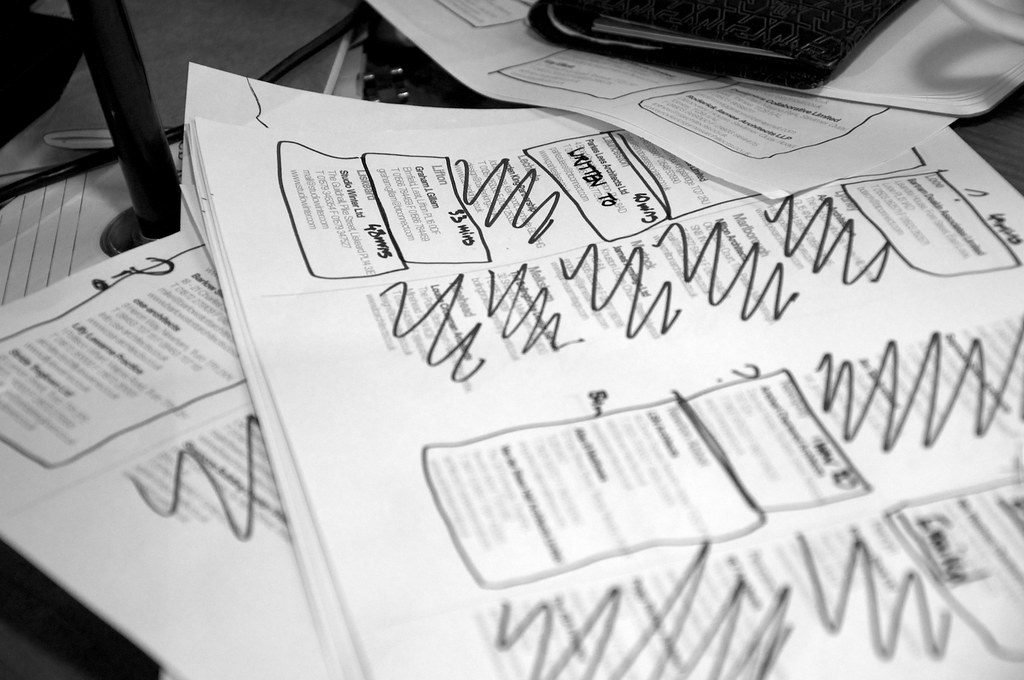Writing my first novel was the hardest thing I’ve ever done. It took me two full years to get through the first draft, and I felt like I was slogging my way through the entire time. I would write sections of the book and read over what I had written and cringe. Sure, I also had days where I felt like I had actually written something good, but most of the time I was full of self-doubt.
I had never written a book before, so I had no idea what I was doing. I tried to ask people for advice and read writing guides and that helped a little, but it didn’t even really begin to make a dent in the constant fear that plagued me that I was doing everything the wrong way. My book was so messy. I had handwritten most of it, crossed out things, scribbled notes to myself in the margin. At the end of that long, hard two years I was left with a pile of pages that looked like someone had left them outside in every kind of crazy weather.
This was just not how I pictured a good book being written.
I assumed that good writers kept careful notes, and that those notes were always very well organized. I assumed that good writers mapped out an outline and then stuck to it faithfully. I assumed that good writers knew exactly what they were writing, and why, and who their audience would be, and how to market their book to that audience.
I assumed that every other writer out there knew way more than I did about everything, and that, somehow, I was woefully behind and would never catch up.
Flash forward ten years later and here I am today with four published books. Am I a different kind of writer now? Did I learn how to map out the perfect outline and keep careful notes? Do I know exactly what kind of writer I am and who wants to read my stuff? Am I a master at marketing?
Um…no.
However, while I might still struggle with plotting and planning and figuring out every little detail of the writing process, I can tell you that I consider myself a successful writer. I am miles and miles away from the writer I was ten years ago, the writer who was full of fear and self-doubt. These days, I love who I am as a writer and I’m having more fun in my writing life than ever before.
What changed?
The short answer is: I chilled the F out.

The long answer is: I realized that sometimes our version of “success” doesn’t look like everyone else’s version, and it also doesn’t look like what we thought it might look like when we envisioned our future in our mind. Same thing goes for our book. Much of the time, the successful book we end up with looks very different than what we expected. But just because something doesn’t match our expectations, doesn’t mean that we’ve failed.
This is the turmoil that a lot of writers go through that is difficult to resolve in our own minds. We become so attached to one version of what success looks like, or what a good book should be, or how our writing journey should unfold, that it’s emotionally hard for us to accept any other version of things that shows up in our reality. So, when I took a look at my pile of wrinkled, messy pages covered in scribbles with sections crossed out and coffee stains everywhere, I started immediately judging myself and noticing all the ways that my manuscript wasn’t what I thought it should be. This only intensified when I would read through the actual story and see plot holes, clumsy language, unfinished chapters, and confusing storylines. The reality in front of me was so far away from the expectations I was carrying in my head that I couldn’t help but to let self-doubt overtake me.
The only way to get past this is to let go of expectations and embrace the reality of our story. Are you halfway through your novel and it’s turning into a romance instead of hard sci-fi? Okay, that’s cool. Let’s work with that. Or, have you just finished writing the first few chapters and now you have no idea where to go from here? That’s cool too. It’s okay to be confused. You’ll figure it out. The important thing is to take a deep breath and let whatever is happening with your book happen. The more you try to fight and resist the way your story wants to come out, the more energy you will waste staying stuck on a set of expectations that just aren’t going to be met. And that means you’ll stay stuck overall, bogged down in a book that is clearly not moving.
Take a step back right now and look at your WIP, or whatever creative project you’ve been working on lately. Are you feeling stuck anywhere? Is that stuck-ness possibly related to expectations you’ve created around the work that don’t seem to be panning out? How would it feel to let go of those expectations and accept your art for what it is, right now, in this moment?
From personal experience, I can say it’s highly likely that it feels like relief to do that. It feels like shifting into a lighter, more open place where working on your writing might actually sound like fun again.
That’s where you want to be, feeling light and open and that one of the main priorities of your writing is to have fun.
You can get there. Start with the deep breath. Take the step back.
Let whatever your work is right now just be.
This post originally appeared on Lauren’s blog on June 11, 2019.

Share this post with your friends.

